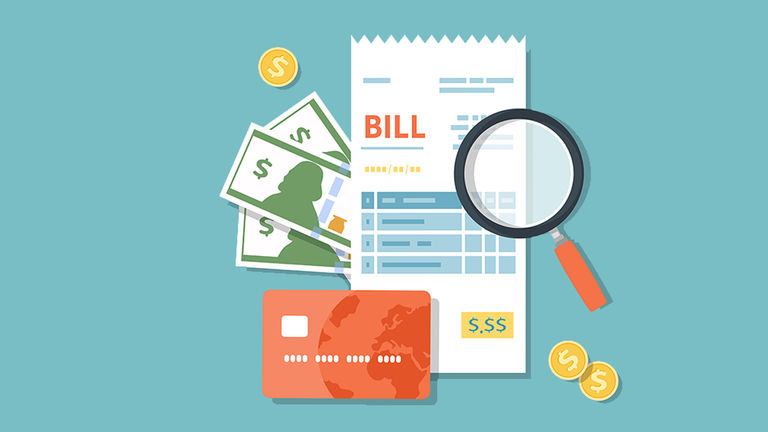In some corners of the world wide web, travel advisors are drawing a line in the sand.
They may not be able to meet in person, but advisors are sharing their stories where they can, from Zoom calls to Facebook groups. In an Instagram direct message, advisor Maria Diego, founder of Diego Travel Agency, admitted as much.
“I’ve talked to fellow advisors who have said ‘never again,’ regarding working with certain suppliers,” she said.
The American Society of Travel Advisors (ASTA) is also taking a stand. In a statement released on April 15, the association admonished operators that have acted unethically and caused financial stress for travel advisors during the coronavirus pandemic.
“Despite being blameless with respect to the cancellation, in many cases, both the traveler and the travel advisor suffer financially when the supplier’s existing policies governing refunds, cancellations and commissions are enforced as written, despite the unforeseen nature of the circumstances necessitating the cancellation,” reads the statement. “While this is painful enough, what is far more egregious from ASTA’s perspective is the growing number of suppliers that have elected to change their refund, cancellation and commission policies retroactively, overwhelmingly to the detriment of advisors and consumers alike. This is simply wrong in every possible way.”
Not only are advisors working harder than ever before, but they’re losing money, in addition to having to bear the brunt of their clients’ dissatisfaction.
“With few exceptions, the agency community was left holding the bag,” said Scott Largay, director of marketing for Largay Travel. “They’ve been forced to suffer the impact of these unjust policies and communicate this distasteful message to clients with no recourse.”
A mid-March survey from J.D. Power and Associates finds that “four out of 10 travelers believe that travel suppliers could be doing better meeting expectations related to cancellation policies.”
Those who help each other through a crisis like this will have a bond that lasts a lifetime.
And unsurprisingly, many consumers are desiring a full refund of prepaid travel and a waiving of change or cancellation fees.
“Our advice is to keep these policies straightforward — without exceptions and qualifiers,” said Michael Taylor, practice lead for travel at J.D. Power. “This will go a long way in generating trust among customers once the pandemic wanes and travel is permissible again."
As a result of problematic policies, the pandemic will whittle down the pool of suppliers that advisors decide to work with in the future, says Terry Dale, president and CEO of United States Tour Operators Association (USTOA).
“Those who help each other through a crisis like this will have a bond that lasts a lifetime,” Dale said. “But for those who fall short, it will be hard. We need to be there for one another as a travel community, especially in times like this. You can show your true colors, both in a good way and a bad way.”
Gary Sadler, senior vice president of sales for Unique Vacations, Inc., agrees.
“Partnering with companies that appreciate you and support you in both the tough times and the brighter days is key,” he said. “Advisors should definitely be more selective in the suppliers they choose to work with.”
Lindsey Epperly Sulek, founder and CEO of Epperly Travel, says that there will be some suppliers that her agency will sever ties with moving forward.
“So much can fall through the cracks when times are good, but times of crisis reveal who the best partners are and which businesses align with your values,” she said.
Fortunately, it hasn’t all been doom and gloom.
Advisors and suppliers alike are not just taking solace in the platitude that “we’re all in this together” — most are acting the part.
In a reader poll conducted by TravelAge West in late March, fewer than 10% of the nearly 500 travel advisor respondents reported feeling “very disappointed” or “somewhat disappointed” by communications from their supplier partners. On the other hand, more than 80% of respondents said they feel “very satisfied” or “somewhat satisfied” with them.
For every story of a supplier falling short, there are many more of a partner going above and beyond. And for every story of a nightmare client, there are gushing accounts of appreciative clients. Now, more than ever, good advisors and suppliers alike are being celebrated for their value and integrity.
“As we move through and past COVID-19, we believe advisors will be looking to align with partners whose engagement and support was consistent during the crisis,” said Dave Ferran, head of sales at Classic Vacations. “These are partners who lived up to their service proposition; who were consistent with their terms; who picked up the phone and were engaged; who were solutions-based in support of advisors and travelers; and, most importantly, who were and are financially strong.”
With all that being said, there’s little doubt in anyone’s mind that relationships in this industry will change as a result of the coronavirus.
No one knows what the future holds, but best practices for supplier-advisor relationships are beginning to emerge — which will help both groups navigate the tricky terrain of working together on a client’s behalf. Following are some expected outcomes of the coronavirus’ effect on the travel industry’s most foundational partnerships.
 Travel advisors now have a better understanding of the behind-the-scenes operations of their supplier partners.
Travel advisors now have a better understanding of the behind-the-scenes operations of their supplier partners.
Credit: Getty ImagesTransformational Transparency
This crisis has shown everyone’s cards, and now that advisors are more acutely aware of a supplier’s behind-the-scenes processes, they’re asking a lot more questions.
“We are now infinitely more educated on how suppliers do business, and we’re navigating a new set of questions to ask,” Epperly Sulek said. “We even sent out an email to our supplier partners asking for them to better educate us here. Honestly, how many advisors knew how a supplier’s cash flow worked until six weeks ago? Now, we’ve all received a crash course in cash flow, and it’s making us better at our jobs. The more we can seek to understand our suppliers, the better we can be at choosing the right ones to work with.”
And now that a pandemic is not unimaginable, future crises that mirror our current situation will no longer have the benefit of being called “unprecedented.”
“Moving forward, I think advisors will be looking for answers on how suppliers will respond in times of crisis,” said Leslie Wahlgren, a travel advisor for Plaza Travel. “We will be asking for specific after-hours communications when needed and, personally, I’d like to see final payments made 30 days in advance to departure, versus months in advance.”
As this outbreak shows, there’s a trickledown effect. Honest suppliers make it possible for advisors to have a clear conversation with their client, who — by the way — will also be demanding transparency.
“Both suppliers Celebrated Experiences and Queen of Clubs have gone above and beyond in explaining the ‘why’ and ‘how’ behind the way they do business, as well as the reasoning behind their terms and conditions,” Epperly Sulek said. “They educate us so that we can better educate the client, and an educated client tends to be a more understanding client.”
Suppliers: Here’s an Advisor’s Wish List
Scott Largay, director of marketing for Largay Travel, shares what he believes advisors will ask for from their supplier partners.
1. Advisors will demand that their clients’ deposits and payments be protected in escrow accounts or other vehicles prior to trip dates.
2. Terms and conditions will need to be crystal clear and user-friendly. If a company fails to provide the fully paid and booked experience, the supplier must commit to refund all money paid in advance – without exception.
3. In the event a travel agency is legally challenged due to the unorthodox business practices of a supplier, the agency should be indemnified by the supplier for any liability/loss and all related expenses incurred by the agency.
4. Commissions should be paid to advisors within a reasonable amount of time prior to the commencement of a trip and after final payment is made to the supplier.
5. Because OTAs have proven their inability to provide professional and timely services to travelers during a crisis, suppliers should enforce anti-rebating policies and restrict or stop those companies from selling travel through their portals.
Lead With Loyalty
Suppliers will lean on their preferred agency partners to rebuild quality business, says Michael Holtz, founder and CEO of SmartFlyer.
“The value of consistently driving business to some of our most cherished ground partners and hotels is seen tenfold in times like these, where their ‘value adds’ keep our clients happy and engaged,” he said.
The value of consistently driving business to some of our most cherished ground partners and hotels is seen tenfold in times like these.
“The mutual trust and respect that has been forged through the flames of this crisis will emerge as the backbone of an enhanced and more mutually beneficial relationship moving forward,” he said. “Transparency, honesty and mutual respect will be among the welcome outcomes of all this.”
Chris Austin, senior vice president of global marketing and sales for Seabourn, agrees.
“When times get tough, we all have a tendency to support those we know and trust best, and this case is no exception,” Austin said.
The perks of a strong relationship have never been more obvious, and the best way to show appreciation is through repeat business.
“Suppliers are going to need greater partnership on bookings and more loyalty from advisors,” said Kimberly Daley, president and CEO of Mountain Travel Sobek. “It will be more important than ever that the relationship between the advisor and supplier is solid.”
As unifying as this pandemic can be, it will highlight more than just if suppliers and advisors are doing right by each other.
“Having to rework trips two or three times is showing how important it is to partner with someone who has a similar approach, and this situation will highlight any mismatches in communication style,” said Kate Thomas, owner of tour operator North & Leisure and co-founder of Travel Pro Theory, a resource for travel advisors and operators. “I’m hopeful this will become more important and can be talked about openly.”
 Now that suppliers and advisors are comfortable with virtual communication tools, expect more virtual events.
Now that suppliers and advisors are comfortable with virtual communication tools, expect more virtual events.
Credit: 2020 Getty ImagesVirtual Reality
Many employers are realizing that staffers can be productive working from home, and even the least tech-savvy among us are gradually adopting new virtual communication tools with relative ease.
Although the desire to meet in person will increase following the pandemic, so too will the realization that virtual events can do a great job of transmitting information and establishing one-on-one connections.
Grace McBride, founder of TripKit, a concierge service for travel advisors, believes that suppliers — particularly hoteliers — will opt for more digital meetings.
“Virtual events will save hoteliers a lot of money and time now that they know they can draw an audience with digital meetings — something that was ill-attended prior to the COVID-19 crisis,” she said. “The ability to simultaneously connect with agent partners from different parts of the country has created an exciting new opportunity. Plus, the younger generation of advisors are very digitally savvy and aren’t as fond of cocktail parties and dinner meetings.”
Seabourn’s Austin also believes that suppliers will leverage virtual meeting tools.
“We cannot totally replace in-person meetings, but this unprecedented time has taught us all that human connections both for business and for fun can happen via the internet,” he said.
While dinner meetings may have lost the allure they once had, McBride doesn’t believe fam trips will become less attractive, though she does think that suppliers will likely be more selective about who they invite for these opportunities.
Expect changes in the industry’s marquee events, as well. Virtual meetings give organizations the potential to effortlessly tap into a global audience, secure a broader range of speakers and avoid logistical nightmares.
And while virtual events do not generate the same amount of revenue, they are significantly cheaper to produce. Unless the event is experiential in nature, virtual tools can re-create some of the core aspects of a live event.
“Digital meetings allow for partnership, productivity and creativity — minus the expense,” McBride said.
 Suppliers and advisors need to work together to gain the trust of the consumer.
Suppliers and advisors need to work together to gain the trust of the consumer.
Credit: 2020 Getty ImagesTrust Exercise
In order to build trust among suppliers, advisors and consumers, USTOA’s Dale says the trade association is currently working on creating a set of health and safety protocols that it will encourage its members to use. Designed in conjunction with an infectious disease expert — and in the absence of conclusive government criteria — the guidelines are a proactive step to alleviate consumer and advisor concerns alike.
“The series of protocols will help give our customers the confidence that they are safe to travel, whether that’s for domestic or international travel,” Dale said. “We owe it to everyone to say these are the steps we are taking, or have taken, to make sure that you can travel with confidence.”
RELATED: WTTC Shares a Sneak Peek at New Global Safety Protocols for Traveling
Advisors will be more steadfast than ever about working with suppliers they can trust — especially if those companies are based overseas.
We owe it to everyone to say these are the steps we are taking, or have taken, to make sure that you can travel with confidence.”
“International travel is still important to every advisor’s book of business, but I think advisors will encourage travelers to book with hotels and operators they know they can trust in case of issues or cancellations,” said TripKit’s McBride. “Advisors won’t want to put themselves in situations where they have to worry about the legal obligations of non-U.S. suppliers, understandably.”
SmartFlyer’s Holtz says that relationships developed over countless one-on-one meetings are more precious than ever. His agency is not developing any supplier blacklists, believing that each client and transaction should be viewed on a case-by-case basis.
“Instead of focusing on the negatives, we highlight the positive stories happening in our space — for instance, the partners that went out of their way to help our clients during this time of crisis,” said Erina Pindar, managing director of SmartFlyer. “Those are the ones that we need to remember when business comes back, and they’ll be the first ones we will drive clients to.”
 Suppliers hope that advisors realize that they are at the mercy of partners, as well.
Suppliers hope that advisors realize that they are at the mercy of partners, as well.
Credit: 2020 Getty ImagesEmpathy Empire
While much of the focus has been on how suppliers can better accommodate advisors, suppliers hope that advisors understand that they are also at the mercy of other travel partners — especially hotels.
“Some accommodations have gotten increasingly strict with their group policies,” said Kasey Morrissey, president of tour operator Austin Adventures. “I’m hoping there’s more leniency with our own suppliers regarding deposits, final payments and cancellations. What we can offer for trips in some places has gotten quite limiting.”
Pindar anticipates that more bookings will be going directly to hotels, rather than through wholesalers.
“The business will be shifting toward companies that are flexible and easy to work with, which all comes back to relationships,” she said.
Operators — especially smaller ones — also want advisors to consider them the same way they might think of themselves.
“Even in the best days, there’s a prevailing attitude in our industry that suppliers foot the bill,” said Thomas of North & Leisure. “In this scenario, there’s a push for suppliers to do full refunds on nonrefundable trips instead of full credits; meanwhile, most advisors are not refunding their fee.”
 Travel advisors will be expected to advise about the nuances of travel insurance coverage.
Travel advisors will be expected to advise about the nuances of travel insurance coverage.
Credit: 2020 Getty ImagesInsurance Assurance
Advisors will be expected to inform clients on travel insurance more than ever before.
“Perhaps the most significant and stressful uncertainty expressed by clients relates to the terms of travel insurance policies purchased from third-party vendors,” Largay said. “Navigating coverage terms, exceptions, notice requirements and pages of terms and conditions requires the assistance of a trusted advisor.”
SmartFlyer advisor Michelle London says she will create an insurance waiver for clients to sign when booking a new trip, which will highlight available upgrades and the importance of understanding the specifics of the policy.
Largay also predicts the creation of more insurance-related processes, especially ones that protect advisors from credit card chargebacks and clients who decline coverage. Advisors will also need to consider the profile and specific needs of the consumer.
“If the proposed travel experience involves a group, there will be the need for considerably more time and attention paid by advisors and clients to fully understand the insurance contract terms, conditions and exceptions, with special attention to the force majeure clause [related to unforeseeable circumstances that prevent someone from fulfilling a contract] and the conditions necessary to trigger and/or limit its application,” Largay said.
Classic Vacations’ Ferran believes that suppliers will expect advisors to “stand behind travel insurance.”
“With ‘cancel for any reason’ protection and commission protection built into our Prestige program, it’s a platinum program that protects everyone’s investment — advisor and traveler,” he said.
4 Ways Advisor-Client Relationships Will Change
Advisors for SmartFlyer share how they will change their client process.
1. Expect more advisors to charge a fee, especially for certain kinds of trips and for new clients.
“This is a sensitive topic, but the general consensus is that more advisors will be looking at ways to protect their time going forward,” said Lesley Cohen.
2. Advisors will be valued for more than their product expertise.
“Clients will seek agents who’ve proven to be agile, responsive and aren’t just well-versed in destinations but also in safety and cleanliness,” said Erina Pindar. “As business returns, it will be more important than ever to have a deeper understanding of your clients’ needs and risk tolerances.”
3. Some clients will be fired.
“Now, more than ever, I realize how valuable my time and expertise are, and I only want to engage with clients who respect and are supportive of this,” said Michelle London.
4. Advisors will double down on their vetting process, making sure that conversations with prospective clients end with the client understanding the value the advisor brings.
“By the time I decide to work with a client, I have a clear picture of the kind of rapport we’ll share,” said Amanda Poses.
Making It Official
Austin Adventure’s Morrissey believes an increase in contracts and formalized rules will probably be the best for everyone.
The supplier-advisor relationship shines when it’s a partnership. The magic happens when it’s a true collaboration. This industry is a house of cards — we all lean on each other.
“There were many handshake agreements before all this happened, but having set policies will help this industry move forward,” she said. “I also think there’s going to be a lot of lightened terms and conditions that come out of this for the long term.”
Thomas of North & Leisure is considering implementing documentation upon booking that clearly states that she is entitled to keeping nonrefundable deposits.
Austin Adventures has considered this kind of documentation before, but Morrissey doesn’t know if it will ever be implemented.
“We want to trust our advisors and not have every single thing documented,” she said. “That being said, it’s a little too early for us to tell which policies will be changing going forward — though we are expecting change.”
Plaza Travel’s Wahlgren is expecting that suppliers might have advisors such as herself sign a consent form detailing terms for cancellations and refunds.
“It might offer a bit more protection to suppliers, and it would ensure that advisors take the time to understand what is being presented to them,” she said.
That sort of empathy and transparency will be the key to moving forward, and hopefully lead to necessary but ultimately beneficial tweaks in the way advisors and suppliers conduct business together.
“The supplier-advisor relationship shines when it’s a partnership,” Thomas said. “Advisors are experts in their clients, and suppliers are experts in their destination. The magic happens when it’s a true collaboration. This industry is a house of cards — we all lean on each other.”